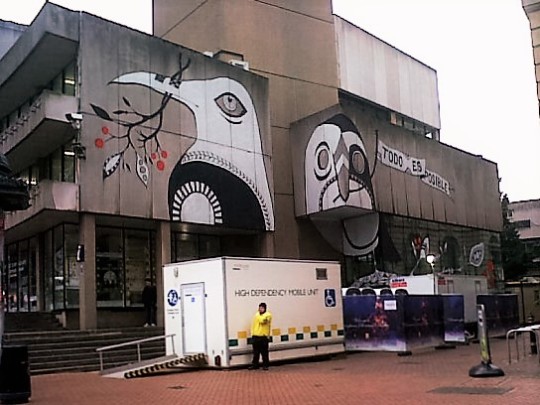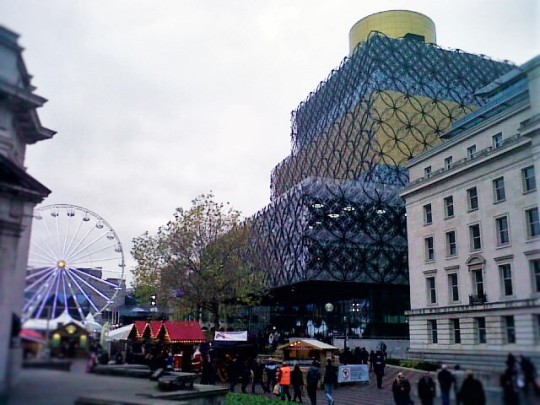War Horse Musician Lose Court Battle Against National Theatre
Being a theatre director I will be following, with interest, the recent developments on the National Theatre’s London production of War Horse.
Five musicians have failed to win a High Court order against the National Theatre (NT) after being made redundant from the West End production and replaced by a prerecorded soundtrack.
The NT said the decision to cut live music from the show was made for artistic and financial reasons. Very interesting! War Horse is one of the National's most successful productions in recent years, having been seen by more than 2.5 million people worldwide. But could it be feeling the pinch at a time when many other West End productions are experiencing a boom in ticket sales?
On the Artistic front they believe that as War Horse is a play with music rather than a musical production it doesn’t warrant a real orchestra.
So should musicians be worried about this latest development?
Until these sackings the London production of War Horse, Currently running at The New London Theatre, was the only version worldwide to make use of real musicians. This latest move puts War Horse London in line with other 'play with music' productions that have opted for backing tracks. However, This might be one of the first to decide, after a 5 year run, that it's better off without live music.
Theatre - a tough old business
As a theatre director myself I know tough decisions have to be made. The Last play I put on, Where's Norman Beaton Gone?, was also a play with music. On that occasion I used prerecorded music. This was the first run of a new play by a new writer. So finding musicians who would play Ska, Reggae and Soca music on the budget we had was going to be a stretch. Plus, one of the Off-West End venues it played, the Lion and Unicorn Theatre, wouldn't have been big enough of house a band and the 10-strong cast. Strangely it was a potential backer who suggested that taking it forward we should use live music - they're usually looking to the pennies and keeping the costs down.
The play I'm currently working on is also a 'with music' production. It's set in the1950s against the backdrop of the New York, Jazz and Blues scene. The question is; Will producers out there think, as the National do, that retaining artists is an unnecessary expense? Only time will tell.
The War Horse Musicians Fight on
The musicians, in the case of War Horse, took legal action last week following the theatre's decision to call an end their contribution.
Neyire Ashworth, Andrew Callard, Jonathan Eddie, David Holt and Colin Rae - who had been with the hit show since it's opening in 2009 - had their roles cut back in March 2013 to just a few minutes per performance. Their contracts were terminated last month when live orchestrated music was cut from the production. The five had continued to show up for nightly performances but were turned away.
David Reade QC said the theatre was entitled to terminate their contracts as there was no longer an orchestra in the production, saying War Horse was a play that featured music - rather than a musical production. He added, "The orchestra was not an integral part of the play. The Theatre is said to be delighted with the High Court's decision.
The NT felt it necessary to emphasise that War Horse has always been, and will continue to be, a play in which music plays an integral part, with a recorded orchestral under-score and central roles for folk musicians who perform live folk songs and choral numbers.
The musicians' Union, which is providing legal support to the five performers said it was “disappointed” by the outcome. Horace Trubridge, MU assistant general secretary, said "The fight was far from over" and added, “Had we won the interim injunction, we would have established a new legal precedent and this was possibly our best chance of ensuring our members’ contracts were honoured.
Is This The End of The West End Feel good Era?
Surprisingly West End Shows have been having a right old time thanks to the economic downturn. People in search of some relief in this time of woe have been seeking solace in live theatre. And West End Theatres have seen their coffers swelling. According to Society of London Theatres figures (SOLT) gross box office returns rose to more than £585 million, up 11% on 2012. Attendances also increased, by 4%, up to 14.6 million. Could it be that that War Horse is feeling the pinch when other West End production are benefitting from a boom?
Maybe the musicians' £1,200 - £1,500 a week salary was taking too big a bite out of War Horse's £1 million budget. Well they seem to think so and I couldn't possibly comment. However, less understandable are the artistic reason's. An NT spokesperson, states that the producers and directors of War Horse did not believe that the musicians could contribute positively to the play and that it was "better off without them". They've obviously had a big change of heart since they first mounted the production, which originally sported a full orchestra
They added: "The National Theatre's artistic judgement, made by those with the expertise to assess such matters, is that a live band does not provide the same quality and impact of performance as can be produced through the use of recorded music and professional actors."
What's The Future For Live Music In Theatre?
The question is, will the NT and others continue to use live music or take to the current trend of using backing tracks?
I've seen a few productions recently that have featured live music. A couple were at the National. One being Elmina's Kitchen, directed by artistic director Nicholas Hytner and, more recently, the James Baldwin Classic The Amen Corner directed by his soon to be successor Rufus Norriss. In the case of The Amen Corner, which has often been mistakenly categorised as a musical, the live music was a key element of the piece. But as I sit and think about it now, I'm sure that had the production transferred the same financial and artistic dilemmas would have reared their heads.
For me, it's sad that, in the performing arts, performing artist are always the ones who suffer in these matters. Jobs in the industry are hard to come by so anything that cuts down on the possibility of a creative individual earning a crush will always hit hard.
Before I go - I thoroughly enjoyed War Horse when I saw it a few months ago. If you haven't seen it yet I'd encourage you to get along to see it before they decide they don't need puppets or actors.
In : Theatre
Tags: "war horse" "national theatre"


